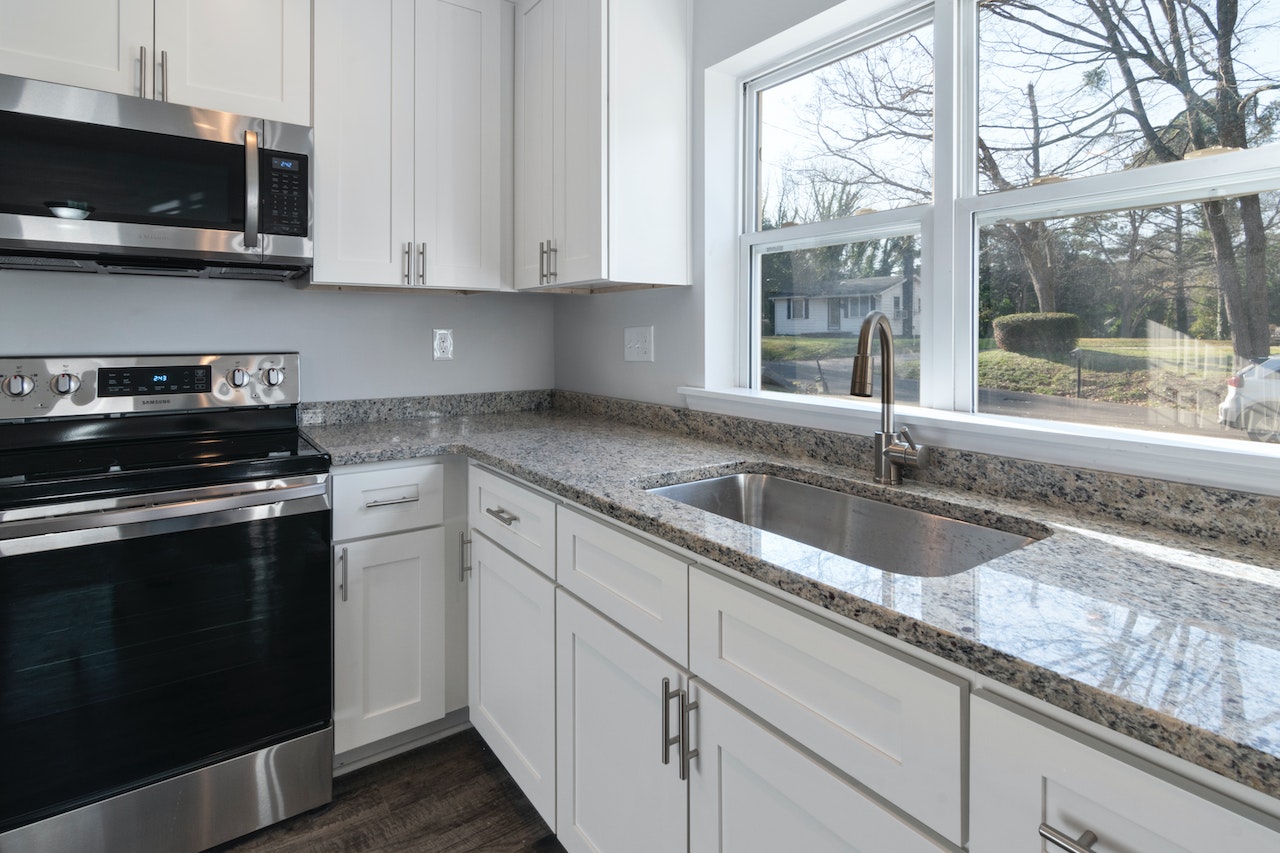Quartz and granite countertops are popular for their durability and aesthetics. These countertops have distinct characteristics that set them apart. Here’s what to know if you’re considering granite or quartz countertop installation:
Composition
Granite countertops are made purely from natural stone. The natural stone is mined, cut into slabs, and fabricated to form your desired countertop size and shape. Quartz countertops are made from engineered stone. The stone often contains ground-up quartz and materials like ceramic and marble bound together with resins.
Appearance
Granite countertops are characterized by their unique veining and speckled patterns. Since they’re made of a natural material, each slab is one-of-a-kind. Granite countertops are available in bright and muted colors, making finding a suitable match for your home easy.
Quartz countertops are also available in numerous colors and patterns. Since they’re made of engineered stone, you can find consistent patterns for your installation. This makes it easy for you to achieve a seamless appearance throughout your home. Consider quartz countertop installation if you’re looking for consistency and granite countertop installation if you want your space to stand out.
Durability
Granite is an igneous rock, which means it has undergone a process of extreme heat and pressure to form. As a result, it is incredibly hard and dense, giving it superior wear resistance. Granite countertops can also withstand high temperatures, making them ideal for cooking and baking areas.
Quartz is engineered to be incredibly strong and long-lasting. The combination of quartz crystals, components like ceramic, and resin binders creates a sturdy and hard surface that can withstand the wear and tear of daily use. Quartz countertops are non-porous, which means they’re resistant to stains and scratches. These surfaces have a consistent structure, so there’s no need to worry about any weak points that might crack or chip over time.
Quartz countertops are also resistant to heat. But be careful not to expose them to heat for too long for optimal service. Use heat pads to protect them from excessive heat.
Maintenance
Quartz countertops are low maintenance as they’re non-porous. They don’t need to be sealed after installation because of the resins used in fabrication. These countertops are also stain resistant. You only need water and soap to keep them clean.
Granite countertops need more specialized care. They’re more porous than quartz countertops, so installers must seal them after installation. They also require periodic resealing to restore their protective layer. To help the longevity of your granite countertops, avoid items and foods that may leave stains. Avoid harsh chemicals and abrasive cleaners as they may strip away the sealer.
Cost
Quartz countertops typically fall in the mid to high price range. Their cost is dependent on factors like size, colors, and patterns. Countertops with unique colors and patterns fall on the high price range spectrum. A countertop with gold flecks may fall on the pricier end.
Granite countertops are often more expensive than quartz countertops because granite is more rare. The cost depends on factors such as the color and rarity of the stone used. The more unique the color, the pricier a countertop will be.
Strength
Quartz countertops have a high resistance to impact because of their resin binders. These binders help to absorb shock and provide a solid foundation for the countertop surface.
Granite is also known for its hardness and resistance to impact. It can withstand objects like pots being dropped on its surface without showing significant damage. It has a lower impact resistance when compared to quartz. This makes quartz a more suitable option for you if you handle heavy objects on or near your countertops.
Chemical Resistance
Quartz countertops are highly resistant to household chemicals like vinegar and lemon juice. Their non-porous surfaces prevent the absorption of such liquids, reducing the risk of discoloration. Granite countertops are relatively chemical resistant. They can withstand mild chemicals without showing damage. But they’re not as resistant to chemicals as quartz. Wipe up acidic liquid spills as soon as they occur for better longevity.
Choose Granite or Quartz Countertop Installation
Granite and quartz are high-quality countertop materials that may help improve your home’s aesthetic and functionality. They both have visually appealing colors and patterns and are durable, making them ideal for your kitchen or bathroom. They offer varying aesthetic appeals and have different maintenance needs. Choose quartz countertop installation if you want a countertop with a consistent aesthetic and low maintenance needs. Granite installation can be ideal if you want your countertops to stand out and are willing to invest in maintenance.





Be First to Comment